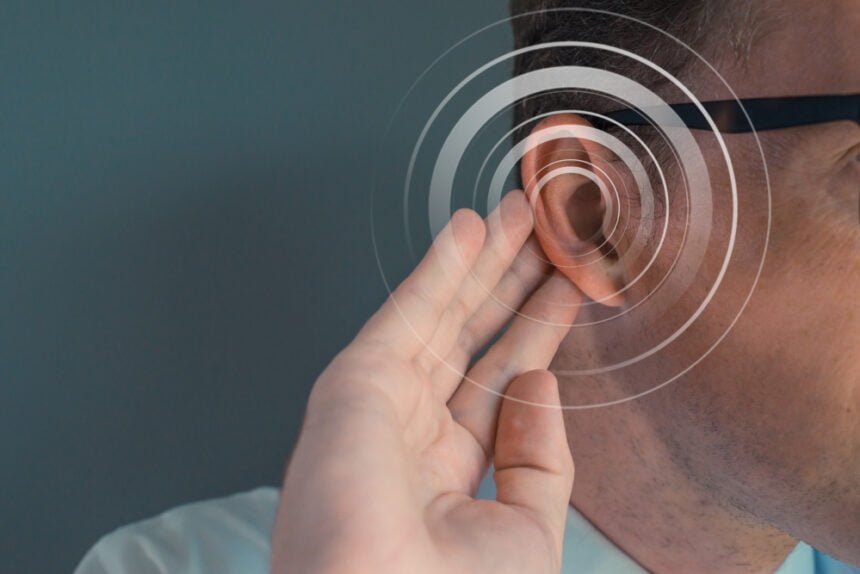Addressing hearing loss is crucial as it has wide-ranging implications on an individual’s quality of life. It can affect one’s ability to communicate, socialize, and stay connected with loved ones, which can lead to feelings of isolation and depression. Moreover, untreated hearing loss has been linked to cognitive decline and an increased risk of falls among the elderly.
Early intervention can slow down or mitigate some of the adverse effects associated with hearing loss. One approach is exploring the various types of hearing aids available. These devices can significantly improve one’s ability to communicate and engage in daily activities.
This article will delve into the different aspects of living with hearing loss and the strategies for coping and thriving in daily life.
Coping With Hearing Loss
Embarking on a journey with hearing loss might seem daunting, but remember, there’s a multitude of resources and strategies at your disposal.
1. Emotional And Psychological Impact
Coming to terms with hearing loss often involves a grieving process. Individuals may experience a range of emotions, such as denial, anger, bargaining, depression, and finally, acceptance. Recognizing and acknowledging these emotions is a vital step toward adaptation and embracing new ways to communicate and connect.
For some, engaging in counseling or therapy can be extremely beneficial in coping with the emotional toll of hearing loss. Moreover, mindfulness and relaxation techniques can reduce stress and anxiety.
2. Communication Strategies
Communication is an essential part of human interaction, and for individuals with hearing loss, it requires specific strategies to ensure clarity and comprehension.
- Lip-Reading And Speech-Reading: Lip-reading involves observing a speaker’s lip movements to understand spoken words. Coupled with speech-reading, which includes observing facial expressions and gestures, individuals can significantly enhance their comprehension of conversations, especially in noisy environments.
- Using Context Clues: Paying attention to the context of a conversation is essential. By piecing together the topic, setting, and the speaker’s emotions, one can often deduce the meaning, even if not every word is understood.
- Assertive Communication: Being open and assertive about hearing needs is crucial. Individuals should feel empowered to request others to speak clearly, reduce background noise, or use visual aids during conversations.
Individuals with hearing loss should not hesitate to ask for repetition or clarification and should be mindful of the environment in which communication occurs.
3. Using Assistive Technologies
A wide range of assistive devices are emerging, significantly improving the way individuals with hearing loss experience the world.
- Hearing Aids: Hearing aids are small electronic devices worn in or behind the ear. They amplify sounds, making them louder and clearer. Different types of hearing aids are available, including behind-the-ear, in-the-ear, and canal hearing aids, each with its own set of advantages.
- Cochlear Implants: For individuals with severe to profound hearing loss, cochlear implants can be an option. These devices bypass the damaged portions of the ear and directly stimulate the auditory nerve.
- FM Systems: Frequency Modulation (FM) systems are useful, especially in educational settings. The speaker wears a microphone, and the sound is transmitted directly to the listener’s hearing device, reducing the effect of background noise.
- Captioning And Other Accessibility Features: Using captioning services for television and videos can enhance understanding. Additionally, smartphone apps can convert speech to text in real time, and vibrating or flashing alerts can replace auditory signals for alarms or doorbells.
Incorporating adaptive communication strategies and embracing assistive technologies can remarkably improve the quality of life for those with hearing loss.
Thriving With Hearing Loss
Thriving with hearing loss goes beyond merely adapting; it’s about leading a fulfilling and active life.
1. Building A Support System
Surrounding oneself with individuals who share similar experiences can be incredibly empowering. Support groups offer a safe space for sharing stories, exchanging tips, and finding encouragement in the journey of living with hearing loss.
Maintaining strong ties with family and friends is vital. Open communication about the challenges faced and the support needed can foster understanding and strengthen bonds. Loved ones can also be instrumental in helping to navigate social situations and providing emotional support.
Establishing a relationship with healthcare professionals such as audiologists and therapists is also essential. They can provide personalized guidance, recommend suitable assistive devices, and offer counseling to address the emotional aspects of hearing loss.
2. Staying Engaged And Active
Engagement in social activities is fundamental to thriving with hearing loss. Opt for gatherings in quieter settings, and don’t shy away from participating in discussions or games. Social interactions contribute to mental well-being and combat feelings of isolation.
One can also engage in hobbies and interests that bring joy and fulfillment. Whether it’s painting, gardening, reading, or any other activity, hobbies provide a sense of purpose and can often lead to social opportunities as well.
Lastly, partaking in volunteer work or community service is not only personally rewarding but can also be a way to connect with others and build a sense of community. It instills a feeling of contributing positively to society.
3. Self-Advocacy And Education
Being well-versed in legal rights is crucial for anyone with hearing loss. Laws such as the Americans with Disabilities Act protect against discrimination and mandate reasonable accommodations in various settings.
Furthermore, taking the initiative to educate family members, colleagues, and acquaintances about hearing loss fosters empathy and understanding. It can also help to dispel common misconceptions.
With these strategies, individuals with hearing loss can lead rich, fulfilling lives and make meaningful contributions to the community.
Conclusion
As a society, it is everyone’s collective responsibility to foster an inclusive environment for individuals with hearing loss. From understanding their needs to implementing accessibility measures in public spaces and workplaces, each step counts.
For those living with hearing loss, it is vital to recognize that this journey, though challenging, is rich with opportunities for growth and connection. Embrace the support available, and don’t hesitate to explore new avenues for communication and engagement. Your experiences and insights can be invaluable to others, and there’s a community that appreciates and uplifts your contributions.










